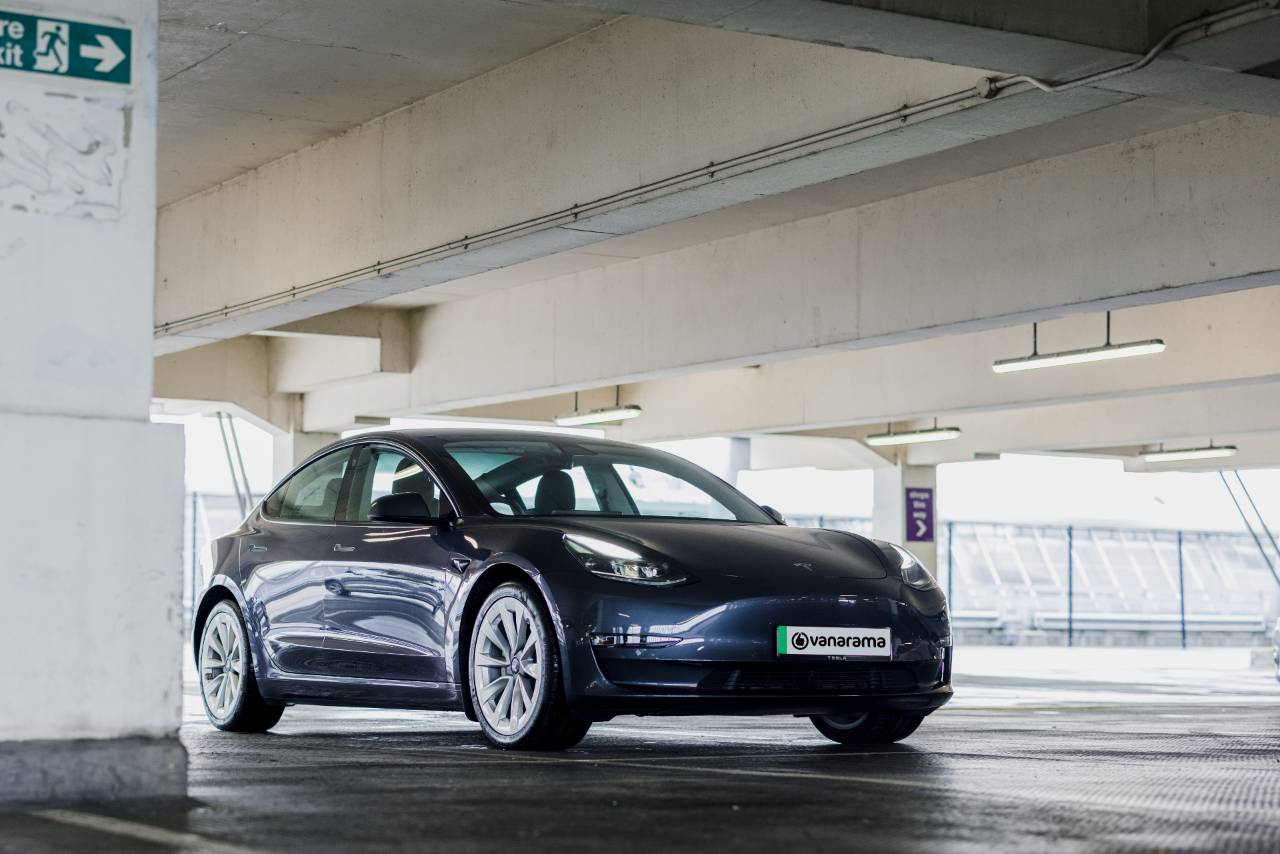
Vanarama’s chief executive has expressed his disbelief and anger at the Government’s surprise decision to slash the Plug-in Car Grant (PiCG) and Plug-in Van Grant (PiVG) financial assistance with effect from mid-December, a move which critics say could seriously delay people making the switch from internal combustion engine (ICE) cars to electric vehicles (EVs).
The move by the Government came into effect from 7am on Wednesday, December 15, 2021, and has seen both grants substantially cut – meaning people considering leasing an EV for personal or business use will end up notably out of pocket.
The changes now mean that only electric cars with a list price of less than £32,000 are eligible for the PiCG, when previously it was £35,000, and they can only qualify for up to 35% of the vehicle’s value, to a maximum of £1500 – down from £2500 prior to December 15.
Meanwhile, the PiVG has been slashed to a maximum of £2500 for small vans, of less than 2.5 tonnes gross vehicle weight (GVW), and £5000 for large vans (2.5t-3.5t GVW). Grants for vehicles of greater than 3.5t are unaffected.
The unexpected move comes at a time when the industry is trying to increase the uptake of electric cars and vans, ahead of the Government’s proposed ban on the sale of any new pure petrol- or diesel-powered vehicles in the UK from 2030 onwards.
But the fear is that people and businesses looking to make the switch from an ICE car or fleet of vans to an EV will now be left seriously financially disadvantaged if they decide to do so.
‘Move Ill-Timed At Best’
Andy Alderson, the CEO and founder of Vanarama, one of the UK’s biggest vehicle leasing companies, was fuming at the abruptness and timing of the Government’s decision to diminish the 2 grants.
He said: “Yesterday’s government announcement came as a complete shock to the industry and has the potential to do enormous damage both economically and environmentally.
“The PiCG and PiVG have both been major factors in helping people make the decision to move away from older and more polluting technologies to greener and cleaner EVs.
“We all knew grants couldn’t continue forever, but to slash them so savagely and with immediate effect just as the industry prepares to hit the EV tipping point in 2022 doesn’t seem sensible at all.
“The Government’s own plans to end petrol and diesel sales by 2030, as was talked about so much at the COP26 climate crisis summit just last month, must now be in serious doubt.”
He added: “As a business, we have hundreds of EVs on order, and we now have to go back to customers and tell them the grant they would have received earlier in the week will no longer be available. We had no warning and no time to prepare. This move is ill-timed, at best.”
‘Drivers Risk Being Left Behind’
Alderson’s anger at the timing of the decision was echoed by other leading automotive industry bodies. Mike Hawes, the chief executive of the SMMT, said: “Slashing the grants for electric vehicles once again is a blow to customers looking to make the switch and couldn’t come at a worse time, with inflation at a 10-year high and pandemic-related economic uncertainty looming large.
“Industry and government ambition for decarbonised road transport is high, and manufacturers are delivering ever more products with ever better performance. But we need to move the market even faster – from 1 in 100 cars on the road being electric, to potentially 1 in 3 in just 8 years – which means we should be doubling down on incentives. Other global markets are already doing so whereas we are cutting, expecting the industry to subsidise the transition, and putting up prices for customers. UK drivers risk being left behind on the transition to zero-emission motoring.”
The move also disappointed manufacturers of electric vehicles, such as Vauxhall, which has a strong portfolio of electric vehicles at the moment – including the Corsa-E and Mokka-E models – and which has also committed to selling only electric cars and vans from 2028 onwards.
Paul Willcox, the managing director of Vauxhall, added: “These changes provide a confusing message to UK consumers and will harm EV adoption at a time when we need to be doing all we possibly can if we are to stand a chance to move the UK to electrified-only vehicles by 2030.
“While we understand the Government’s desire to phase out the plug-in vehicle grant at some point, we really need to see a more strategic, longer-term approach. A lack of clarity and certainty for customers can only harm EV adoption, and leave the UK lagging behind other countries in the race to decarbonise personal transport.”
Electric Van Uptake Slower Than Cars
Meanwhile, Gerry Keaney, the chief executive of the British Vehicle Rental and Leasing Association (BVRLA), said the uptake of electric vans was not proceeding as quickly as that of electric cars, so called on the Government to do more to support businesses making the shift to zero-emissions fleets: “While we’ve seen high levels of uptake within the car market, the situation is not the same for electric vans. The disparity across the industry means that sweeping solutions are not suitable.
“Incentives have had a positive impact to date but there is more to be done. It is disappointing to see support declining when cost remains a crucial stumbling block.
“There remain many barriers that are slowing down the mass transition to electric vans. This news increases those challenges and will delay the uptake of electric vans.
“For the move towards electric vans to gain momentum, more support and incentives are essential, now is not the time to remove or reduce them.
“We are calling on the Government to provide more support around commercial vehicles, including an extension of the Plug-in Van Grant beyond the current 2022/2023 end date.”
Order Spikes
For its part, the Office for Zero-Emission Vehicles (OZEV) – the department of the Government responsible for the grants – said it understood the disruption that would be caused by the sudden, unannounced change to the financial aid offered for people looking to lease an electric vehicle.
But it also said it had to manage grant budgets carefully and, if it had announced it was going to make the cut to the PiCG and PiVG, then there would have been a spike in orders prior to the cut-off date which would have proved to be ‘unaffordable within allocated budgets’.
The OZEV also said that while it understood the disappointment of funders and leasing companies, who were unable to honour quotes given to customers for orders in process but not completed by the deadline for the grant’s change, it also added that ‘in the context of our responsibility to protect public funds, [this situation] is unfortunately unavoidable’.
However, a small ‘grace’ period means that funders and leasing companies can claim for any orders on electric vehicles that were placed by customers in the 7 consecutive days before the grant rate change but which were not logged on the Government’s portal.
This means any orders placed between 00.01am on December 8, 2021, and 11.59pm on December 14, 2021, will be paid at the previous grants rates and eligibility criteria.
[“source=vanarama”]



